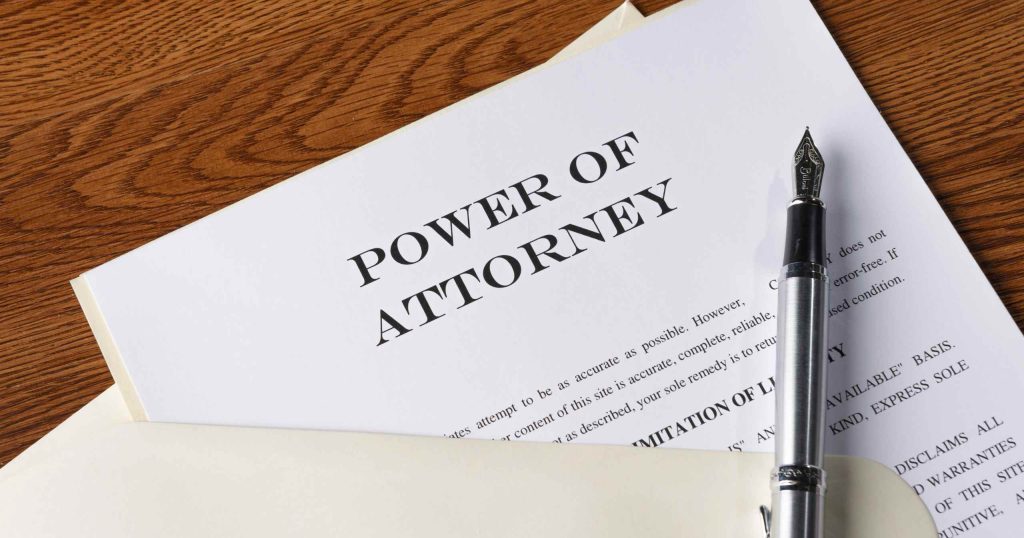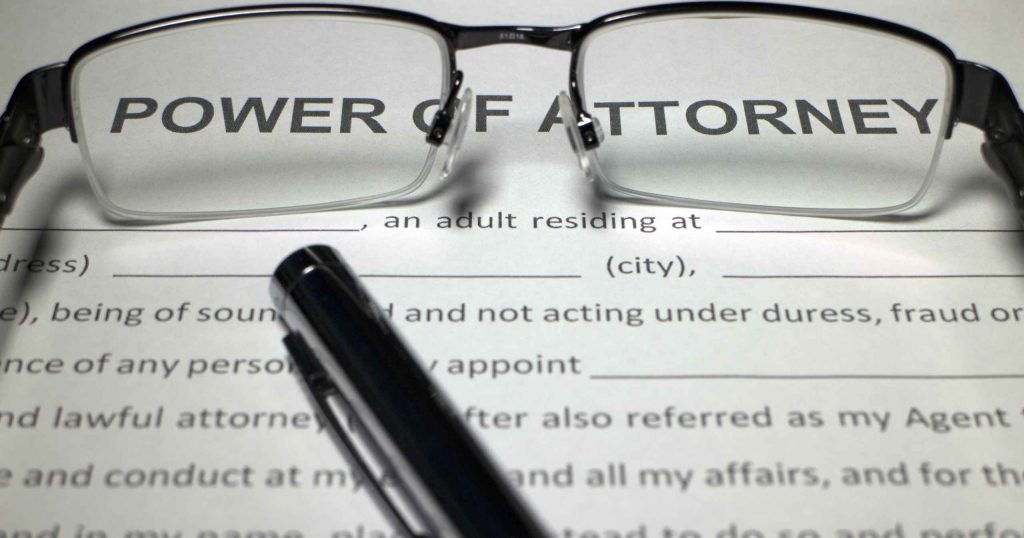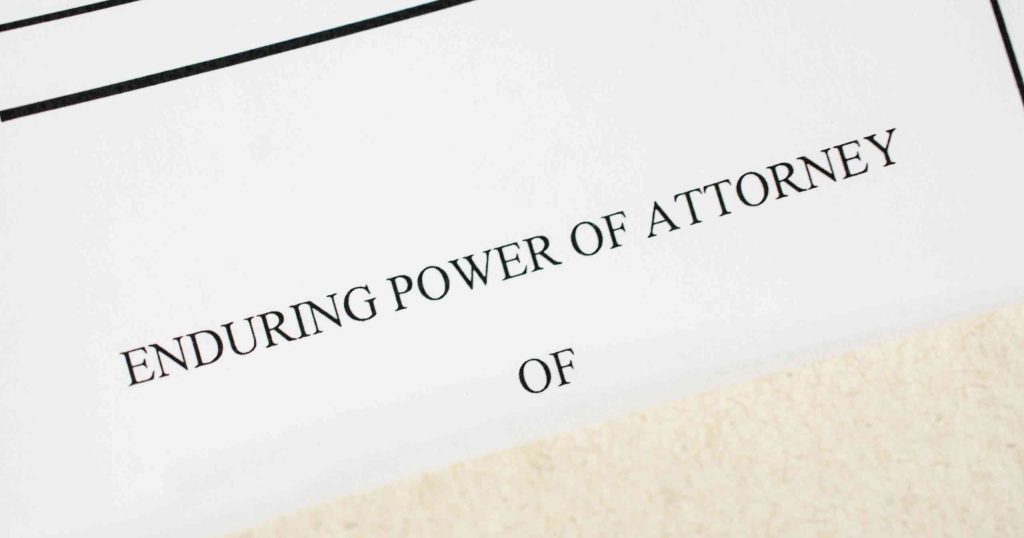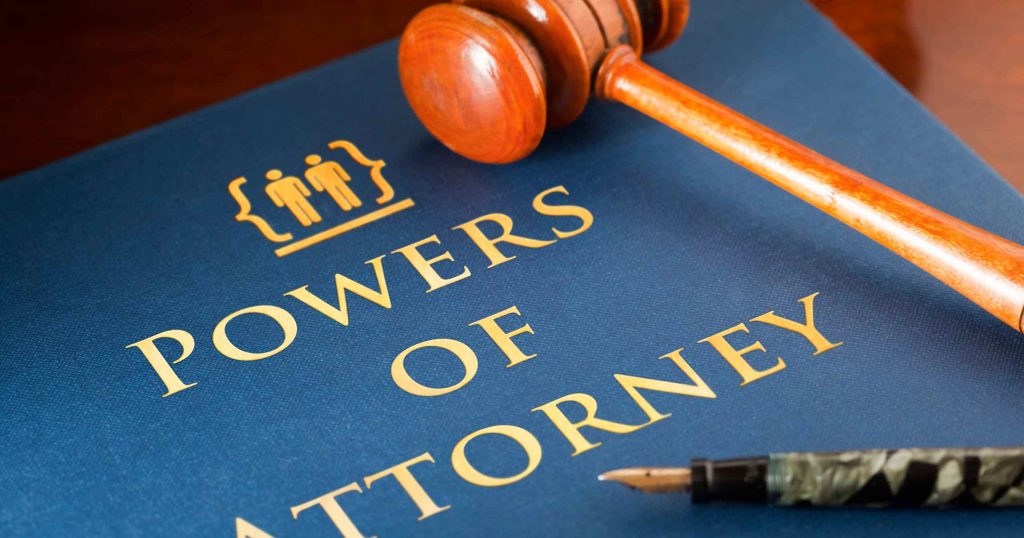At Law Matters, we understand how important it is to have a comprehensive understanding of the country’s legal system. One area that individuals and businesses often require assistance with in estate planning is power of attorney. In this article, we’ll cover everything you need to know about South African power of attorney, including the definition, types, requirements, and FAQs.
Table of Contents
What is Power of Attorney?

Power of attorney (POA) is a legal document that grants an individual or entity the authority to act on behalf of another person or organization. In South Africa, POA is governed by the Power of Attorney Act 38 of 1962. The act outlines the requirements for granting and revoking POA and provides guidelines for how POA can be used.
Why is a Power of Attorney Important?

A power of attorney is important because it ensures that your affairs will be managed by someone you trust if you become unable to manage them yourself. Without a power of attorney, your loved ones may need to apply to the courts to obtain a guardianship order, which can be a lengthy and expensive process.
Types of Power of Attorney in South Africa
There are three main types of power of attorney in South Africa:
1. General Power of Attorney

A General Power of Attorney is a legal document that authorizes someone to act on your behalf for a wide range of matters. It can be a very useful tool in estate planning, providing you with flexibility and peace of mind in managing your affairs.
A General Power of Attorney can be used for a variety of purposes, such as managing your finances, dealing with government agencies, or managing your business. It can be especially useful if you travel frequently or if you have a medical condition that makes it difficult for you to manage your affairs.
One of the main benefits of a General Power of Attorney is that it provides continuity in managing your affairs. By appointing someone you trust to act on your behalf, you can ensure that your affairs will be managed even if you become incapacitated or unable to manage them yourself.
A General Power of Attorney can also be useful in avoiding the need for a guardianship order. Without a Power of Attorney in place, your loved ones may need to apply to the courts to obtain a guardianship order, which can be a time-consuming and expensive process.
It is important to note, however, that a General Power of Attorney grants broad powers to your agent, which means that they can make decisions on your behalf that could have significant consequences. For this reason, it is important to choose an agent you trust and to carefully consider the powers you grant in the document.
A General Power of Attorney can be tailored to meet your specific needs and objectives. You can specify the types of decisions your agent can make on your behalf, and you can also include limitations or conditions on the powers granted. This ensures that your affairs are managed in a manner that is consistent with your wishes.
It is also important to keep your General Power of Attorney up to date. If your circumstances change, or if you are no longer comfortable with your agent, you can revoke or amend the document at any time.
2. Special Power of Attorney

A Special Power of Attorney is a legal document that grants specific powers to an agent to act on your behalf for a limited and specific purpose. It can be a useful tool in estate planning, providing you with flexibility in managing your affairs.
A Special Power of Attorney can be used for a variety of purposes, such as purchasing or selling a specific property, managing a specific business transaction, or managing your affairs while you are out of the country. It is important to note that the powers granted in a Special Power of Attorney are limited to the specific purposes outlined in the document.
One of the main benefits of a Special Power of Attorney is that it allows you to appoint someone you trust to handle specific matters on your behalf, without granting them broad powers that could have significant consequences. This can provide you with peace of mind and ensure that your affairs are managed in a manner consistent with your wishes.
A Special Power of Attorney can be tailored to meet your specific needs and objectives. You can specify the scope of the powers granted, the duration of the document, and any limitations or conditions on the powers granted. This ensures that your affairs are managed in a manner that is consistent with your wishes.
It is important to choose an agent you trust and to carefully consider the powers you grant in the document. The agent must be specifically authorized to perform the task or tasks listed in the Special Power of Attorney. The agent’s authority will be limited to the specific task or tasks listed in the document, and they will not have the power to act beyond the scope of the authority granted.
If your circumstances change or if the specific purpose outlined in the Special Power of Attorney is completed, the document will no longer be valid. It is important to keep the document up to date and revoke it if necessary.
3. Enduring Power of Attorney

An Enduring Power of Attorney is a legal document that grants an agent the power to act on your behalf if you become incapacitated or unable to make decisions for yourself. This type of power of attorney can be an important part of estate planning, as it allows you to appoint someone you trust to manage your affairs if you become unable to do so.
The agent appointed in an Enduring Power of Attorney will have broad powers to manage your affairs if you become incapacitated, including managing your finances, making healthcare decisions, and dealing with your property. It is important to choose an agent you trust and who has the necessary skills to manage your affairs in the event that you become incapacitated.
One of the main benefits of an Enduring Power of Attorney is that it can help to avoid the need for a court-appointed guardian or conservator in the event that you become incapacitated. By appointing an agent in advance, you can ensure that your affairs are managed in accordance with your wishes and avoid the stress and expense of a court proceeding.
It is important to note that an Enduring Power of Attorney will only become effective if you become incapacitated or unable to make decisions for yourself. Until that time, you will retain full control over your affairs.
It is also important to ensure that the Enduring Power of Attorney is executed properly in accordance with Act 13 of 2006. This act provides for the appointment of an agent to act on behalf of an older person who is unable to manage his or her affairs due to age, illness, or injury. This may include having the document witnessed or notarized. It is also important to keep the document up to date and to revoke it if necessary.
Choosing an Agent

Choosing the right agent is essential when creating a power of attorney. Your agent should be someone you trust, who has your best interests at heart, and who is willing and able to act on your behalf when necessary.
Limitations of a Power of Attorney

It is important to understand that a power of attorney has limitations. For example, your agent cannot make decisions that are not in your best interests or that conflict with your wishes. Additionally, a power of attorney does not give your agent the authority to make medical decisions on your behalf.
Revoking a Power of Attorney

You can revoke a power of attorney at any time, as long as you are mentally competent to do so. This can be done by notifying your agent in writing or by creating a new power of attorney that revokes the previous one.
Benefits of a Power of Attorney

One of the primary benefits of a power of attorney is that it ensures that your affairs will be managed by someone you trust if you become unable to manage them yourself. Here is the list of all 10 benefits of a power of attorney:
- Avoids the need for a guardianship order: If you become unable to manage your affairs and do not have a power of attorney in place, your loved ones may need to apply to the courts to obtain a guardianship order. This can be a time-consuming and expensive process that can cause additional stress and burden for your loved ones.
- Provides for continuity in managing your affairs: By appointing an agent to act on your behalf, you can ensure that there is continuity in managing your affairs even if you become unable to do so yourself. This can help to avoid disruptions in your financial and legal affairs.
- Allows for flexibility in decision-making: With a power of attorney in place, you can choose the type of power of attorney that best meets your needs and specify the types of decisions your agent can make on your behalf. This allows for greater flexibility in decision-making and can ensure that your wishes are respected.
- Provides for asset protection: A power of attorney can help to protect your assets by allowing your agent to manage them on your behalf. This can be especially important if you become incapacitated and unable to manage your assets yourself.
- Helps to avoid family disputes: By appointing an agent to act on your behalf, you can help to avoid disputes among family members about how your affairs should be managed. This can help to preserve family relationships and ensure that your affairs are managed in a manner consistent with your wishes.
- Provides for tax planning: With a power of attorney in place, your agent can make financial decisions on your behalf that can help to minimize taxes and maximize your estate planning objectives.
- Provides for business continuity: If you own a business, a power of attorney can ensure that there is continuity in managing the business even if you become unable to do so yourself. This can help to ensure the ongoing success of your business.
- Provides for peace of mind: Knowing that your affairs will be managed by someone you trust if you become unable to manage them yourself can provide peace of mind for both you and your loved ones.
- Can be tailored to your specific needs: A power of attorney can be tailored to meet your specific needs and objectives, ensuring that your affairs are managed in a manner consistent with your wishes.
- Can be changed or revoked at any time: If your circumstances change, or if you are no longer comfortable with your agent, you can change or revoke your power of attorney at any time. This provides flexibility and ensures that your affairs are managed in a manner that is consistent with your wishes.
How to Create a Power of Attorney
To create a power of attorney in South Africa, you will need to follow these steps:
- Choose the type of power of attorney that is right for you.
- Choose your agent.
- Draft the power of attorney document.
- Sign the document in the presence of a commissioner of oaths.
- Have the document notarized by a notary public.
How to Grant Power of Attorney in South Africa
To grant POA in South Africa, certain requirements must be met:
- The person granting the POA must have the mental capacity to do so.
- The person granting the POA must do so voluntarily and with a full understanding of the implications.
- The POA document must be in writing and signed by the person granting the POA in the presence of a commissioner of oaths.
What Powers Can be Granted with Power of Attorney in South Africa?
The powers granted with POA in South Africa depend on the type of POA granted. However, some common powers that can be granted include:
- The power to sign contracts on behalf of the grantor.
- The power to manage the grantor’s finances, including accessing bank accounts and paying bills.
- The power to make healthcare decisions on behalf of the grantor.
- The power to make legal decisions on behalf of the grantor.
When Does a Power of Attorney Become Effective in South Africa?
A POA becomes effective immediately upon signing unless otherwise specified in the document. However, if the POA is a special POA, it will become effective on the date specified in the document.
How to Revoke Power of Attorney in South Africa
To revoke POA in South Africa, the person who granted the POA must:
- Draft a revocation document that specifies the date and type of POA being revoked.
- Sign the revocation document in the presence of a commissioner of oaths.
- Deliver the revocation document to the person or entity that was granted the POA.
Who Can Act as an Agent in a Power of Attorney in South Africa?
Any person or entity can act as an agent in a POA in South Africa. However, it’s important to choose someone who is trustworthy and has the necessary skills and knowledge to carry out the duties specified in the POA document.
Can Power of Attorney be Challenged in South Africa?
Yes, POA can be challenged in South Africa. Reasons for challenging a POA may include fraud, undue influence, or lack of mental capacity on the part of the person granting the POA. If a POA is successfully challenged, it will be deemed invalid and no longer enforceable.
What Are the Risks of Granting Power of Attorney in South Africa?
While POA can be a useful tool, there are risks associated with granting someone else the authority to act on your behalf. These risks include:
- The agent may abuse their power and act against your best interests.
- The agent may make mistakes or errors that could result in financial or legal consequences for you.
- The agent may become incapacitated or unavailable when you need them to act on your behalf.
To minimize these risks, it’s important to choose an agent carefully, clearly define their powers and responsibilities in the POA document, and regularly review and update the document as needed.
Frequently Asked Questions About Power of Attorney in South Africa
Here are some of the most frequently asked questions about POA in South Africa:
How much does it cost to create a power of attorney in South Africa?
The cost of creating a POA in South Africa varies depending on the complexity of the document and the legal fees charged by the attorney drafting it. However, it’s generally more affordable to create a simple POA than a more complex one.
How long does a power of attorney last in South Africa?
The length of time a POA lasts in South Africa depends on the type of POA granted. A general POA lasts until the specified purpose has been completed, while a special POA lasts for a specified period. An enduring POA lasts until it is revoked by the grantor.
Do I need a lawyer to create a power of attorney in South Africa?
While it’s not strictly required to have a lawyer create a POA in South Africa, it’s highly recommended. A lawyer can ensure that the POA document is legally valid and that the powers granted are clearly defined and appropriate for the situation.
Can I grant power of attorney to more than one person in South Africa?
Yes, it’s possible to grant POA to multiple people in South Africa. However, it’s important to clearly define each person’s powers and responsibilities in the POA document to avoid confusion or disputes.
Can a power of attorney be used after the death of the grantor in South Africa?
No, a POA cannot be used after the death of the grantor in South Africa. However, if the grantor had a will, the executor of the estate may be granted similar powers to carry out the grantor’s wishes.
Can I revoke the power of attorney at any time in South Africa?
Yes, the grantor can revoke POA at any time in South Africa, as long as they have the mental capacity to do so and follow the proper procedures for revocation.
Can power of attorney be granted to a minor in South Africa?
No, POA cannot be granted to a minor in South Africa. Only individuals who have reached the age of majority (18 years old) can grant POA or act as agents in a POA.
Do I need to register a power of attorney in South Africa?
No, it’s not required to register a POA in South Africa. However, it’s important to keep the original document in a safe place and provide copies to anyone who may need to act on your behalf.
Can power of attorney be granted for international transactions in South Africa?
Yes, POA can be granted for international transactions in South Africa. However, it’s important to ensure that the document complies with the laws of both South Africa and the other country involved.
Can I grant power of attorney to someone who is not a South African citizen?
Yes, it’s possible to grant POA to someone who is not a South African citizen, as long as the document complies with the legal requirements of South Africa.
What happens if the agent abuses their power in a power of attorney?
If the agent abuses their power, the grantor or another interested party may challenge the validity of the POA in court.
Can a power of attorney be used to transfer ownership of property in South Africa?
Yes, a POA can be used to transfer ownership of property in South Africa, but it’s important to ensure that the document complies with the legal requirements for property transfers.
Can power of attorney be granted to a trust in South Africa?
Yes, POA can be granted to a trust in South Africa, but it’s important to ensure that the trust document allows for this type of arrangement.
Can I grant power of attorney to someone outside of South Africa?
es, it’s possible to grant POA to someone outside of South Africa, but it’s important to ensure that the document complies with the legal requirements of both South Africa and the other country involved.
Can a power of attorney be used to make decisions about my children?
No, a POA cannot be used to make decisions about children. Custody and guardianship issues must be addressed through a separate legal process.
Can a power of attorney be granted to an organization or company in South Africa?
Yes, POA can be granted to an organization or company in South Africa, but it’s important to ensure that the document complies with the legal requirements for this type of arrangement.
Can a power of attorney be granted to a mentally incapacitated person?
No, a mentally incapacitated person cannot grant POA in South Africa. The grantor must have the mental capacity to understand the nature and consequences of the document they are signing.
Can a power of attorney be granted for a future event or situation?
No, POA can only be granted for current or future events or situations that are reasonably foreseeable at the time the document is created.
Conclusion
In conclusion, a power of attorney can be a valuable legal tool in South Africa, allowing an individual to grant someone else the authority to act on their behalf. However, it’s important to carefully consider the risks and benefits of POA and to choose an agent who is trustworthy and capable of fulfilling their responsibilities.
When creating a POA document, it’s recommended to consult with a qualified attorney who can ensure that the document is legally valid and that the powers granted are appropriate for the situation. Regularly reviewing and updating the POA can also help to ensure that it remains relevant and enforceable.
By understanding the legal requirements and best practices for creating and using a POA in South Africa, individuals can better protect their interests and ensure that their wishes are carried out if they become unable to act on their own behalf. If you need assistance with creating or modifying a power of attorney, please contact us today to schedule a consultation and learn more about how we can help you with your power of attorney needs.








